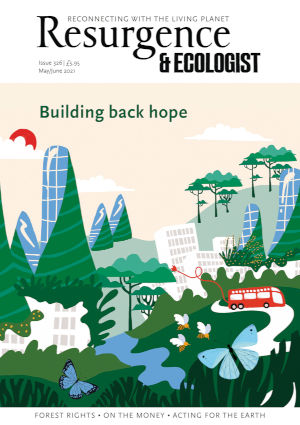Brightlingsea in Essex is a tiny coastal town not far from Colchester. It sits on a creek at the mouth of the river Colne. Today, the town is characterised by its quietness, its sleepiness. Rows of beach huts and retirement bungalows are framed by a large, white sky that hangs like a sheet above the town, seagulls circling above. There is one road in and one road out.
In January 1995 that road was transformed. Local people woke to find it filled with lorries carrying live cattle and sheep. A decision had been made for Brightlingsea to be used for live animal exports. Without water or rest, often contained for hours at a time, the animals were distressed, unwell, even injured.
Enraged, the townspeople wrote letters and went door to door, and when this failed they took matters into their own hands. They decided to blockade the town, physically barring the live animal export lorries from entering. They sustained their campaign for over 10 months. Dozens were arrested every day and there were reports of police brutality. Media from around the world flocked to this tiny Essex town. The protesters weren’t seasoned activists or environmentalists, but elderly women, young people bunking off from the local school, and mums with babies in buggies. One woman in her eighties chained herself to a drain. Ultimately the people of Brightlingsea stopped live animal exports coming through the town.
I grew up close to Brightlingsea and heard about the blockade from an old school friend whose grandmother had taken part in the protests. As a playwright I was gripped by the story and its improbability. I had searched for years for a way to link environmental and social concerns. This was it. It connected so many things: sustainable agriculture, police brutality, activism. I knew I had to find a way to tell the story as a play.
It isn’t easy for a theatre-maker to depict environmental issues. Novelists and film-makers might be able to put storms, flooding and wildfires at the heart of their stories. However, these acts of destruction can be difficult to stage in a theatre. Take, for example, the generations of directors who have grappled with how to portray the famous storm in King Lear. As sea levels rise and we face even more cataclysmic destruction, there is a very real need for theatre-makers to respond. Culturally, they have a duty to help raise the alarm. This is why I wanted to tell Brightlingsea’s story.
I believe, if properly harnessed, theatre can be a real vehicle for change. It allows for nuanced, complex debate in a way that a one-hour TV episode simply cannot. It is a collaborative exchange, and one that is under fewer commercial pressures than most artistic mediums. Equally, it’s often the training ground for screenwriters and directors who go on to create films and TV that reach millions. Somehow it needs to find a way to rise to the challenge of representing environmental issues. We need more stories like that of Brightlingsea that reveal the intertwined nature of us and our environment.
We might not always be able to stage the storm, but we might just be able to stage how a community shelters in response. We can find the narratives amongst the debris, and name new truths. Culture might seem trivial in the face of such an emergency, but it is essential if we are to create new identities and remember our mistakes.
Polly Creed’s play ‘Humane’ tells the story of Brightlingsea. Published by Aurora Metro, it will be performed at the Pleasance Theatre, Islington in autumn 2021. www.aurorametro.com/product/humane-play








